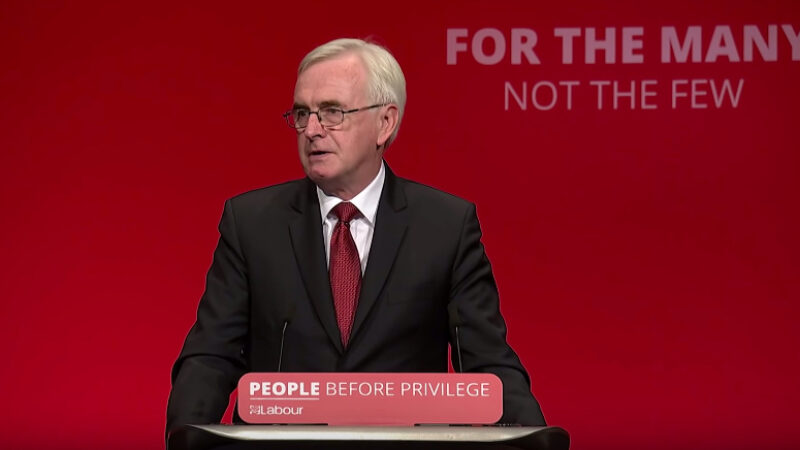
John McDonnell has confirmed that Labour’s 32-hour week policy would apply to NHS workers – something that appeared to be denied earlier this morning by health spokesperson Jonathan Ashworth.
Asked by the BBC whether the NHS would be included in Labour’s so-called ‘four day week’ plan, the Shadow Health Secretary replied: “No.” He added that the idea it could be applied to the NHS was “for the birds”.
But speaking at the launch of the party’s new “NHS rescue plan” in London today, the Shadow Chancellor said: “It’s a 32-hour week implemented over a ten-year period – it will apply to everyone. What Jon was talking about is how you apply it over that period.”
McDonnell added: “The Tories are giving this impression that we get elected on December 12th… and on December 13th everyone’s on a four-day week – no, that’s not what we’ve said. That’s not what Jon has said this morning either.”
The Shadow Chancellor clarified that the implementation would not be immediate because “just like every other reduction in the working week, it is planned and agreed and negotiated between trade unions and employers over time”.
He explained: “As we put this investment into our economy, it will become more productive, there’ll be higher wages and over time as the economy grows, and as that wealth is created, we want a proportion of that wealth shared with the workforce more fairly.”
McDonnell also insisted that the policy should be described as a reduction in the average full-time hours to 32 a week, rather than a “four-day working week”. At one point during the Q&A, he interjected when a journalist described it as a four-day working week to say: “It’s a 32-hour week. Let’s get it right.”
At Labour conference in September, McDonnell included the promise in his keynote speech. He said: “I can tell you today that the next Labour government will put in place the changes needed to reduce average full-time hours to 32 a week within the next decade. A shorter working week with no loss of pay.”
Explaining the radical move, the Shadow Chancellor told conference he had “always believed we should work to live, not live to work” and noted that “the average full-time working week fell from nearly 65 hours in the 1860s to 43 hours in the 1970s” thanks to the labour movement.
The bold policy proposal was put forward at the annual summit by CWU, and it was endorsed by TUC, Momentum and the Labour 4 Day Week campaign group. “It’s time for working people to share in the benefits of new technology,” the TUC’s Frances O’Grady said.




More from LabourList
SPONSORED: ‘Industrial hemp and the challenge of turning Labour’s priorities into practice’
‘A day is a long time in politics, so we need ‘action this day’’
Strong support for child social media ban among Labour members, poll reveals